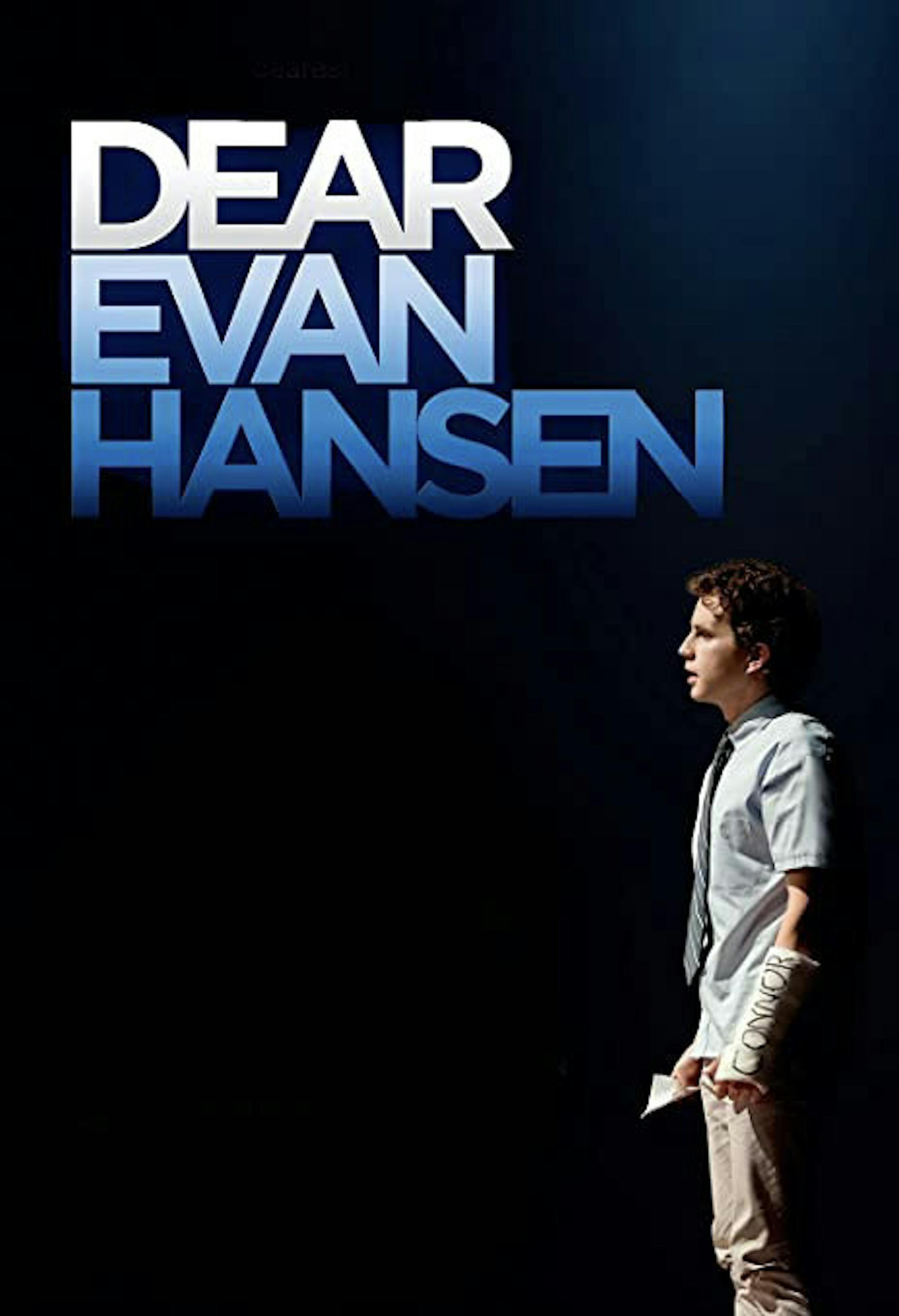Content warning: This article mentions suicide.
For better or for worse, “Dear Evan Hansen”' (2021) has infiltrated our current cultural narrative. Images of the film are everywhere, whether it be the meme of Ben Platt crying or the TikTok commentary on Platt’s ability to play the role of Evan at his age. These commentaries are poignant, often funny, but severely detached from the film itself. What even is “Dear Evan Hansen?” Is it as bad as the memes and TikToks portray it to be? After sitting through all two hours and 17 minutes, the answer still seems to be unclear.
The film follows Evan Hansen (Ben Platt), a high school student with severe anxiety and depression. Evan's therapist asks him to write positive letters to himself, but his letter is intercepted by classmate Connor Murphy (Colton Ryan). Soon after, Connor takes his own life, with the note still in his possession. Connor’s family (Amy Adams, Danny Pino, Kaitlyn Dever) believe the note to be Connor’s suicide note, and that there must have existed a secret friendship between Evan and Connor. Not wanting to disappoint Connor’s parents, Evan goes along with this story. What ensues is a downward spiral of chaos, with Evan growing closer to the Murphy family as time goes on. This continues until, inevitably, the lie comes crashing down.
From the plot alone, it’s fairly easy to see why “Dear Evan Hansen” has gotten such a bad rap. Still, there are many good elements of this movie, which would be unfair not to mention. “Dear Evan Hansen” makes an honest attempt to increase awareness surrounding issues of mental health, providing a space for young people to see the struggles they might face represented by characters in a large-scale film. Evan and Alana (Amandla Stenberg) speak to one another about the different medications they each take. Evan is pictured in the midst of an anxiety attack. The film does its best to destigmatize mental health and, though it often fails, appears to make a genuine effort.
The film also includes some incredible performances. Julianne Moore, who plays Evan’s mother Heidi, is an immediate standout. In a film where one is constantly questioning directorial choices and lapsing in their suspended disbelief, the final crash of Heidi’s song “So Big / So Small” still devastates. That emotional turmoil is a testament to Moore’s abilities as an actor. Likewise, Kaitlyn Dever’s portrayal of Zoe Murphy brings agency to the character, allowing Zoe to make choices and be active in her grief.
With that said, there is so much deeply wrong with this film. To start, the ages of actors as it relates to characters makes no sense. When one sees Platt, 28, having an emotional conversation with Stenberg, 22, it’s difficult to maintain belief. When Platt bursts into the gymnasium of his high school during the leading song, “Waving Through a Window,” it’s difficult not to think back to some of the more off-putting scenes from “Riverdale” (2017–).
Similarly, “Dear Evan Hansen” follows in the tradition of past movie-musicals such as “La La Land” (2016) by casting big-name actors who have little-to-no musical theatre experience. These actors often sing in more muted tones, in an almost folky style. This is sweet and quaint for a film like “La La Land,” but falls short in a film that intends to be emotionally searing, such as “Dear Evan Hansen.”
The biggest flaw, however, lies in the story itself. The plot of this film is deeply problematic. In lying about his friendship with Connor, the character of Evan exploits the Murphy family after a deeply traumatic event. This leads Evan to great personal gain, with Evan even dating Connor’s sister Zoe. This might not be as problematic if the writing team had treated Evan as an anti-hero. Problematic leading characters are one of the most interesting writing tropes and have been successfully written before. However, with this film the writers work hard to make the audience sympathize with Evan. One of Evan’s final songs, “Words Fail,” is the pinnacle of this internal problem — Evan is given the opportunity to rationalize and to explain his actions. The writers try to justify his deeply exploitative choices, going so far as to have a final reunion between Zoe and Evan in which Zoe forgives him. Despite his personal struggles, Evan does not deserve complete exemption from using a family’s trauma to benefit himself. Anything less than recognizing this is a moral failure on the part of the writers.
After watching the film, it's fairly easy to see why the online backlash has been so strong. Still, it’s unfair to call “Dear Evan Hansen” an entirely unwatchable film. There are highs and lows, with some scenes having strong emotional resonance. Those bright spots, however, fail to save the film from falling into cliche and indecent plot shortcomings. One simply cannot take one’s eyes off the myriad of problems.






